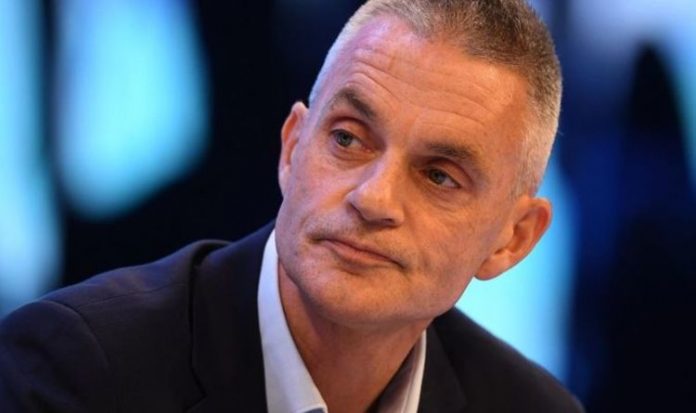Mr Davie has reportedly been urged to create a viable funding model to replace the fee when he takes on his new position on Tuesday. It is understood that the new director-general will not talk about the licence fee disputes during his first speech later this week.
Mr Davie will need to think of a feasible model for the BBC or risk facing difficulties when the Corporation charter is renewed in 2027.
A Conservative minister said there is “real optimism” at the BBC that it can survive without the licence fee.
They told the Telegraph: “There is a real optimism that the BBC will come up with a palatable alternative to the licence fee themselves.
“Tim Davie seems open to the idea of a subscription model.”
The news comes amid reports that ministers will announce the decriminalisation of the licence fee.
From 2022, people who have not paid their licence fee will face civil penalties instead of criminal prosecutions.
The BBC Licence Fee Bill will have its second reading in parliament in November.
A BBC spokesman said: “The licence fee is a way of funding the BBC until at least 2027 and our focus is on providing the best possible value to the public who pay for us.”
READ MORE: BBC ordered to scrap ‘ridiculous’ TV licence fee
Earlier this month, BBC Breakfast’s Naga Munchetty was warned by the BBC that she was risking a “conflict of interest” after he hosted a public relations video for Aston Martin.
Ms Munchetty earns £190,000 a year at the BBC.
But she charges up to £10,000 a time to host or moderate events, according to the agency Speakers Associates.
Jon Sopel, BBC’s north America editor, was criticised by health campaigners after he gave an address to executives at the tobacco giant Philip Morris’ conference last year.
He has also spoken at events run by the bank JP Morgan.
Mr Sopel’s BBC salary reaches £240,000.
The BBC has faced a series of controversies over its decision last week to perform the songs Land of Hope And Glory and Rule Britannia without their patriotic lyrics at the Last Night Of The Proms.
On Friday, Mr Davie’s predecessor, Lord Tony Hall said the BBC was not a “woke corporation”.
He insisted that the removal of the lyrics at the Last Night Of The Proms was done because it would not have been possible to give the songs justice without an audience at the Royal Albert Hall.
Prime Minister Boris Johnson accused the Corporation of “cringing embarrassment about our history”.







